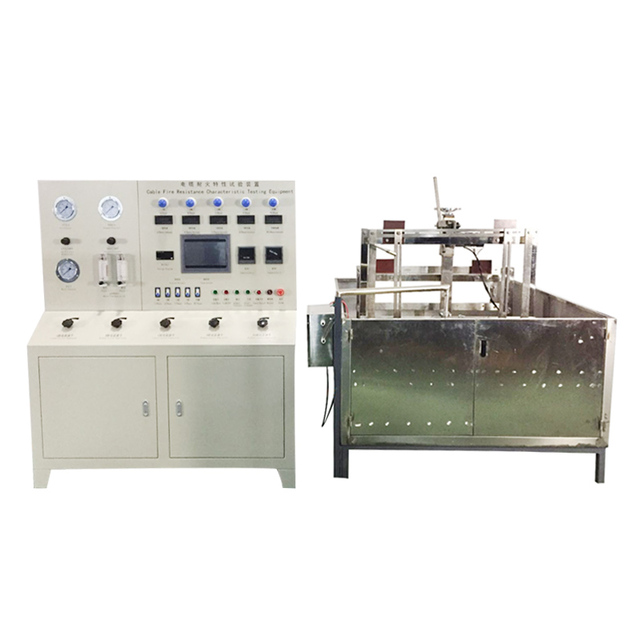Custom Electronic Tensile Testing Machine for Precision Material Strength Evaluation and Performance Analysis
Custom Electronic Tensile Testing Machine Ensuring Material Integrity
In the world of material science and engineering, understanding the mechanical properties of materials is crucial for product development and quality assurance. One of the most effective methods to evaluate these properties is through tensile testing. A custom electronic tensile testing machine plays a vital role in this evaluation, allowing engineers and researchers to obtain precise measurements of a material's strength, ductility, and resilience under tension.
Understanding Tensile Testing
Tensile testing, also known as tension testing, involves pulling a sample material to determine how it reacts to forces applied in tension. This test provides data on several key properties, including ultimate tensile strength, yield strength, elongation, and reduction of area. These properties help predict how materials will behave under different loading conditions and are essential for applications across various industries, from construction and automotive to aerospace and manufacturing.
The Importance of Customization
While standard tensile testing machines exist, custom electronic tensile testing machines offer several advantages that enhance the testing process. Customization allows for tailored solutions that meet specific industry requirements or research goals. For instance, different materials—such as metals, plastics, composites, or textiles—may require unique fixtures, gauge lengths, or specific loading speeds. A customized machine can be designed to accommodate these variables, ensuring accurate and reliable results.
Moreover, incorporating advanced technology into custom tensile testing machines enhances their capabilities. Modern electronic systems can integrate precise load cells, extensometers, and data acquisition systems that enable real-time monitoring and recording of test parameters. This level of detail is crucial for understanding material behavior, especially when conducting high-stakes tests in industries where safety is paramount.
Features of a Custom Electronic Tensile Testing Machine
A well-designed custom electronic tensile testing machine typically includes several key features
custom electronic tensile testing machine

2. User-Friendly Software Advanced software solutions allow users to set up tests easily, monitor results in real time, and generate comprehensive reports, making data analysis straightforward.
3. Versatile Configurations Custom machines can be designed for different test specimens, from small samples to large components, and can even accommodate various testing standards, such as ASTM, ISO, or custom protocols.
4. Enhanced Safety Features Given the potentially hazardous nature of tensile testing, custom machines often include safety features such as emergency stop functions, protective enclosures, and overload alarms.
5. Data Connectivity Modern testing machines can be integrated with digital data networks, allowing for remote monitoring, data sharing, and analysis, which is particularly beneficial in collaborative research environments.
Applications Across Industries
The applications for custom electronic tensile testing machines are vast. In the aerospace industry, they are used to test the tensile strength of lightweight materials for aircraft components. The automotive sector relies on these machines to ensure that materials can withstand the stresses of high-speed travel and impact scenarios. In the construction industry, testing the strength of steel and concrete ensures structural integrity and safety.
Conclusion
Custom electronic tensile testing machines are essential tools for ensuring material integrity across various industries. Their ability to provide precise measurements tailored to specific materials not only supports product development but also enhances the safety and reliability of engineering applications. As technology progresses, the integration of innovative features in these machines will continue to advance, making them an indispensable asset in the realm of material testing.
-
The Role of Tensile Force Testers in Quality Control and Material Science
NewsAug.01,2025
-
Maintenance and Safety Tips for Aging Ovens
NewsAug.01,2025
-
Density Balance in Forensic Science
NewsAug.01,2025
-
Advanced Optical Measurement Technologies
NewsAug.01,2025
-
A Buyer’s Guide to Tensile Test Machines
NewsAug.01,2025
-
Why the Conductor Resistance Constant Temperature Measurement Machine Redefines Precision
NewsJun.20,2025
 Copyright © 2025 Hebei Fangyuan Instrument & Equipment Co.,Ltd. All Rights Reserved. Sitemap | Privacy Policy
Copyright © 2025 Hebei Fangyuan Instrument & Equipment Co.,Ltd. All Rights Reserved. Sitemap | Privacy Policy

